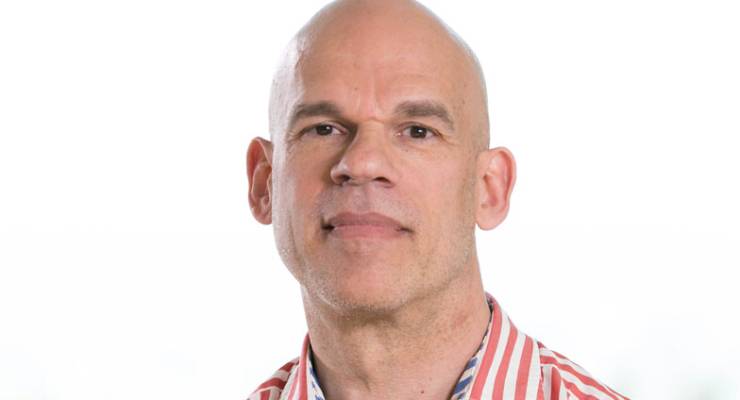
Paul Shetler, Malcolm Turnbull’s hand-picked choice to lead his signature policy — the Digital Transformation Office (DTO) — announced his shock resignation just 18 months into his five-year contract. It has been alleged two staff members made informal bullying complaints against Shetler shortly before he left the organisation.
Shetler told Crikey he had not heard of the bullying allegations and they were “certainly not” the reason for his departure.
The DTO was Turnbull’s pet project while he was communications minister, but the office went without a CEO for almost the first two years of the Abbott government. Shetler was appointed in July 2015, just two months before Turnbull became prime minister.
“Paul was the outstanding candidate following an extensive executive search and competitive recruitment process, and has been appointed to the DTO for a period of five years,” Turnbull said in announcing Shetler’s appointment 18 months ago.
Shetler had a long history in the private sector, but he had worked for only 18 months on the UK’s version of DTO before Turnbull recruited him for what was described at the time as the “dream job” in digital government, to lead the agency designed to get government moving to a “digital-first” approach — where government services are available online.
But the dream turned to nightmare as the agency struggled to be “agile” and get any major projects off the ground in its first year, with some in government believing the last 18 months had been wasted.
As Crikey reported in June, more than a year after its first major funding there was not much to show for it. As of today, there are still just six projects in the beta phase.
When the Digital Transformation Office became the Digital Transformation Agency (DTA) after the election, and Angus Taylor was appointed the assistant minister for digital transformation, Shetler was moved into a new “chief digital officer” role, with Department of Communications deputy secretary Nerida O’Loughlin stepping up as CEO.
Multiple sources have told Crikey that it was widely seen within DTA that this move was intended to manage Shetler out of the organisation in light of the problems facing the agency, while at the same time saving face for the government considering Shetler was chosen by the man who is now prime minister. Shetler resigned from the agency last month.
Shetler’s management approach was said to be “really aggressive” and “buff tough”. Shetler had appointed a “special adviser” to his office on a day rate of $2200 per day. This adviser is also now expected to be leaving as a result of Shetler’s departure.
Two staff, believed to have gone on stress leave at one point, had complained about being bullied by Shetler just six days before he announced his shock resignation, but they had not filed formal complaints.
In a statement at the time, O’Loughlin’s comments were very generic, and simply thanked Shetler for his time at the DTA:
“Paul’s wealth of knowledge and international experience in the field of digital services has been invaluable to the government’s digital ambitions. His creativity and vision have been a great inspiration and have been crucial in helping the government to deliver the first phase of its digital transformation agenda.”
When asked about the specific allegations, a spokesperson for DTA declined to comment, but said the change to the DTA was an expanded remit, with Shetler’s position to be replaced early next year.
“The agency runs a number of different projects, so it’s common practice to employ people with specific expertise to work on short to medium contracts, and to move our resources as priorities demand,” the spokesperson said.
“It’s not appropriate to comment on internal HR matters, including people’s contractual arrangements.”
Sources within DTA told Crikey that with Shetler’s departure, there was now the opportunity for the agency to rebuild and get back on track with the government’s digital agenda.
In a LinkedIn post earlier this week, Shetler defended his work at the DTA, saying the six projects “chose” the DTA, rather than vice versa. He admitted that transformation in the public sector was difficult:
“It’s a general law of sociology that every large bureaucracy seeks to maintain itself in its current form. And that means the institutional inertia against transformation is enormous. Changing government to operate at Internet speed and quality also requires strong will and expenditure of political capital from the nation’s leadership.
“Without that mandate to change, it’s naive to expect an organisation that is very comfortable with its way of working to decide to spontaneously transform itself.”
Shetler said the DTA “attracted the very best talent the nation had to offer” and thanked everyone there.
It is believed that he may be gunning for a role in the Trump administration in the United States. Shetler’s Twitter account has liked several pro-Trump tweets. On the weekend, Boss Magazine named Shetler on Australia’s 50 LGBTI leaders list.








‘The DTO was Turnbull’s pet project while he was communications minister…’
Correction, Josh. The pet project was to completely bastardise Rudd’s NBN. And, contrary to his performance as PM, Turnbull actually managed to achieve an objective.
Against the nation’s interests.